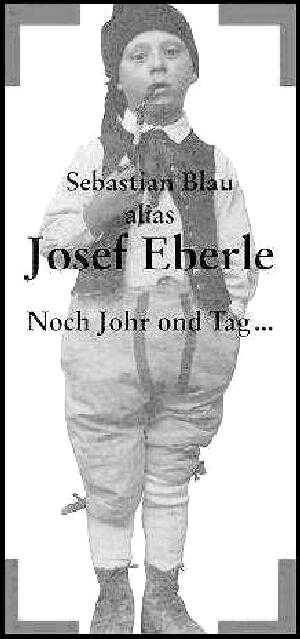
Figure 1.--This is Josef in a photograph taken aound 1905 or 1906. He looks to be wearing Swabian folk costume. Notice the pipe.


Figure 1.--This is Josef in a photograph taken aound 1905 or 1906. He looks to be wearing Swabian folk costume. Notice the pipe. |
Swabian journalist and author Josef Eberle was born September 8, 1901 at Rottenburg on the Neckar, were he also went to school. Later he became an antiquarian, book seller and journalist. Actually, he trained at the same book shop (Heckenhauer) in Tübingen, were Hermann Hesse had learned 20 years before. As a book seller, he went to Berlin, Stuttgart, Karlsruhe, Baden-Baden and Leipzig, worked 1927-1933 at the radio Stuttgart. The NAZIs beginning in 1936 refused to allow him to write anymore. He was arrested and held in the Heuberg Concentration Camp (KZ) during May-June. Later he worked as an assistant at the American consulate. After Wold War II from 1945-1971 he edited the Stuttgarter Zeitung, oneof Germany's most important newspapers. He died September 20, 1986 in Pontresina/Swizerland and was buried in Rottenburg on September 25, 1986. He is best known as a journalist, but he also wrote beautiful Swabian and Latin poems an well as several books, including his autobiography: Aller Tage morgen, and two essays on the Romans. All he’s poems are humorous sometimes melancholic. He was honored as Dr. phil. h.c., Prof. h.c. and poeta laureatus. A bridge was named after him, too.
Josef's father was a male nurse. He died 2 months before Josef's birth. He had a sister Luzie. His mother was a courageous woman who was able to send both children to high schools despite having lost her husband, the family bread earner.
Swabian journalist and author Josef Eberle was born September 8, 1901 at Rottenburg on the Neckar. Having lost his father, Josef and Luzie grew up in an enviroment that money was scarce.
Rottenburg is a very old German town. The Romans founded a camp there and later it became Austrian, thus catholic, in a largely protestant area. Some other towns also became catholic as they belonged to “Vorderösterreich”. Around 180? Napoleon II enlarged the different Länder by taking away the properties belonging to church and many Counts were lifted a level higher.
Swabia or Suabia (Schwaben) was a medieval duchy in southwest Germany. It was named after the Suevi which was one of the names for the Alemanni, the Geraman tribes which occupied the area in the 3rd century. The area occupied by the Alemanni included much of what is now Alsace, Baden, western Bavaria, Württemberg, and much of Switzerland. The Hohenzollern dynasty originated with a family of Swabian counts which divided into a Swabian and Franconian branch. The Swabian league of cities was important in the 14th and 15 centuries. The volk Deutch in the Balkans were named Swabians as many came from Swabia. Swabia is now a district of Bavaria.
Josef remembers wearing white sailor suits as a boy. He describes how he and the other boys used to get their white sailor suits dirty during festivities. He also apparently wore Swabian folk costume, presumably on special occassions.
Josef went to school Rottenburg on the Neckar where he was born. He attended the local [?material] High School at Autengasse. The Latin he learned there inspired him. He ws to use it 40 years later when he wrote undr the pen name Iosephus Apellus. After the school Eberle began teachings as a bookseller in Tübingen.
He he became an antiquarian, book seller and journalist. Actually, he trained at the same book shop (Heckenhauer) in Tübingen, were Hermann Hesse had learned 20 years before. As a book seller, he went to Berlin, Stuttgart, Karlsruhe, Baden-Baden and Leipzig, worked 1927-1933 at South Radio Stuttgart. Under the pen name Tyll, he began publishing
political satirical poems in the "Sunday newspaper". The targets of his poems included the NAZIs.
Eberle because of his political beliefs was dismissed from the Stuttgart radio station where he worked in March 1933 after the NAZIs seized power. He worked as an indedependent writer under the name of Sebastian Blue. His position in NAZI Germany was futher complicated by his Jewish wife. The NAZI prohibited him from writing in 1936. He was arrested and held in the Heuberg Concentration Camp (KZ) during May-June. Later he worked as an assistant at the American consulate, even during the early part of World War II when America was neutral. After America entered the War (Dcember 1941), Eberle worked as a correspodent and librarian.
After Wold War II from 1945-1971 he edited the Stuttgarter Zeitung, one of Germany's most important newspapers. He died September 20, 1986 in Pontresina/Swizerland and was buried in Rottenburg on September 25, 1986. He was honored as Dr. phil. h.c., Prof. h.c. and poeta laureatus. A bridge was named after him, too.
Eberle published under pseudonyms Sebastian Blau and Josephus Apellus among others. He is best known as a journalist, but he also wrote beautiful Swabian and Latin poems an well as several books, including his autobiography: Aller Tage morgen, and two essays on the Romans. Many Swabians consider him their most important poet. All his poems are humorous sometimes melancholic. A German reader writes, "His books are lovely to read, as they describe not only the live in a small town, but also the Swabians, and if you know the towns it is nice, too!"
Navigate the Boys' Historical Clothing Web Site:
[Return to the Main biography page]
[Return to the Main biography D-F page]
[Return to the Main German individual experiences page]
[Introduction]
[Activities]
[Biographies]
[Chronology]
[Clothing styles]
[Countries]
[Institutional wear]
[Bibliographies]
[Contributions]
[FAQs]
[German glossary]
[Satellite sites]
[Tools]
[Boys' Clothing Home]
